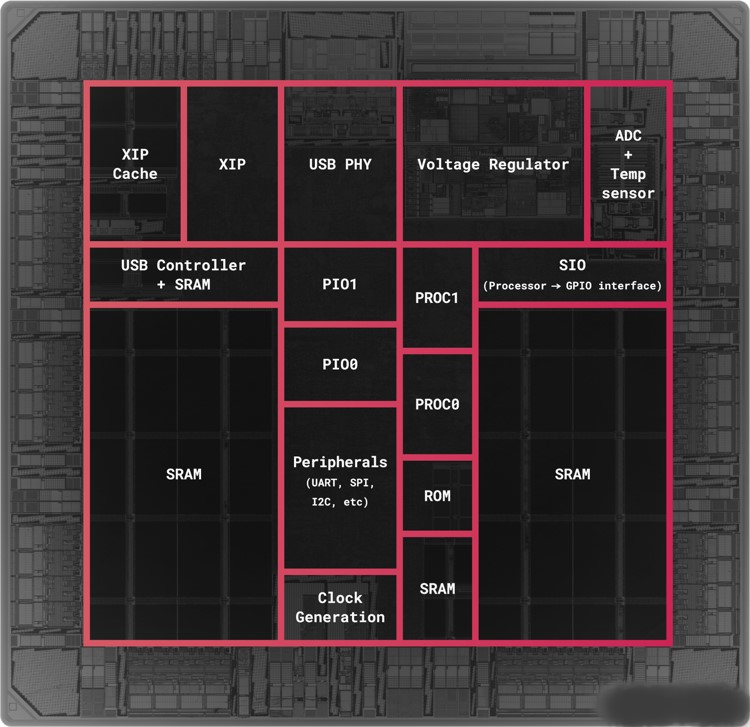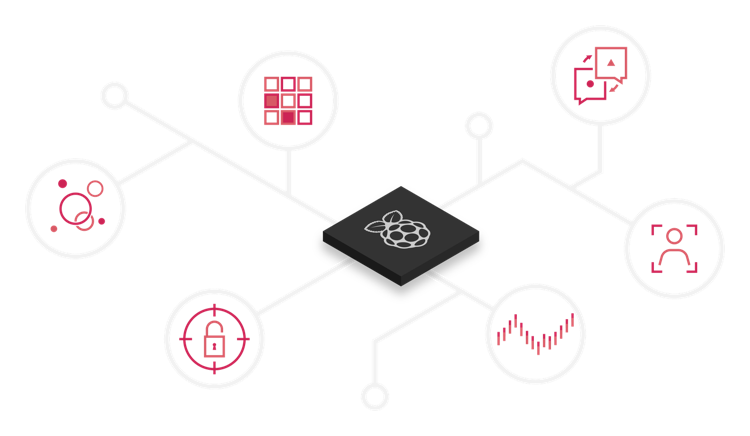Size daha iyi hizmet sunabilmek için çerezleri kullanıyoruz.
Web sitemizde gezinme deneyiminizi geliştirmek, size kişiselleştirilmiş içerik ve hedefli reklamlar göstermek, web sitesi trafiğimizi analiz etmek ve ziyaretçilerimizin nereden geldiğini anlamak için çerezleri ve diğer izleme teknolojilerini kullanıyoruz.
Out Of Stock
Notify me when its in stockFlexible I/O connects the RP2040 to the physical world, allowing it to talk to virtually any external device. High performance breezes on integer workloads. Low cost helps ease the barrier to entry.
It's not just a powerful chip: it's designed to help you carry every last drop of that power. With six independent RAM banks and a fully connected switch at the heart of the bus structure, you can easily set up parallel operation of cores and DMA engines without contention.
The RP2040 builds on Raspberry Pi's commitment to inexpensive, efficient computing in a small and powerful 7mm × 7mm package containing only two square millimeters of 40nm silicon.

Two fast cores, plenty of on-chip RAM, and a
RP2040 with TensorFlow Lite port, machine learning
It is a great platform for applications.
Raspberry Pi RP2040 Features:
Raspberry Pi RP2040 Technical Specifications: